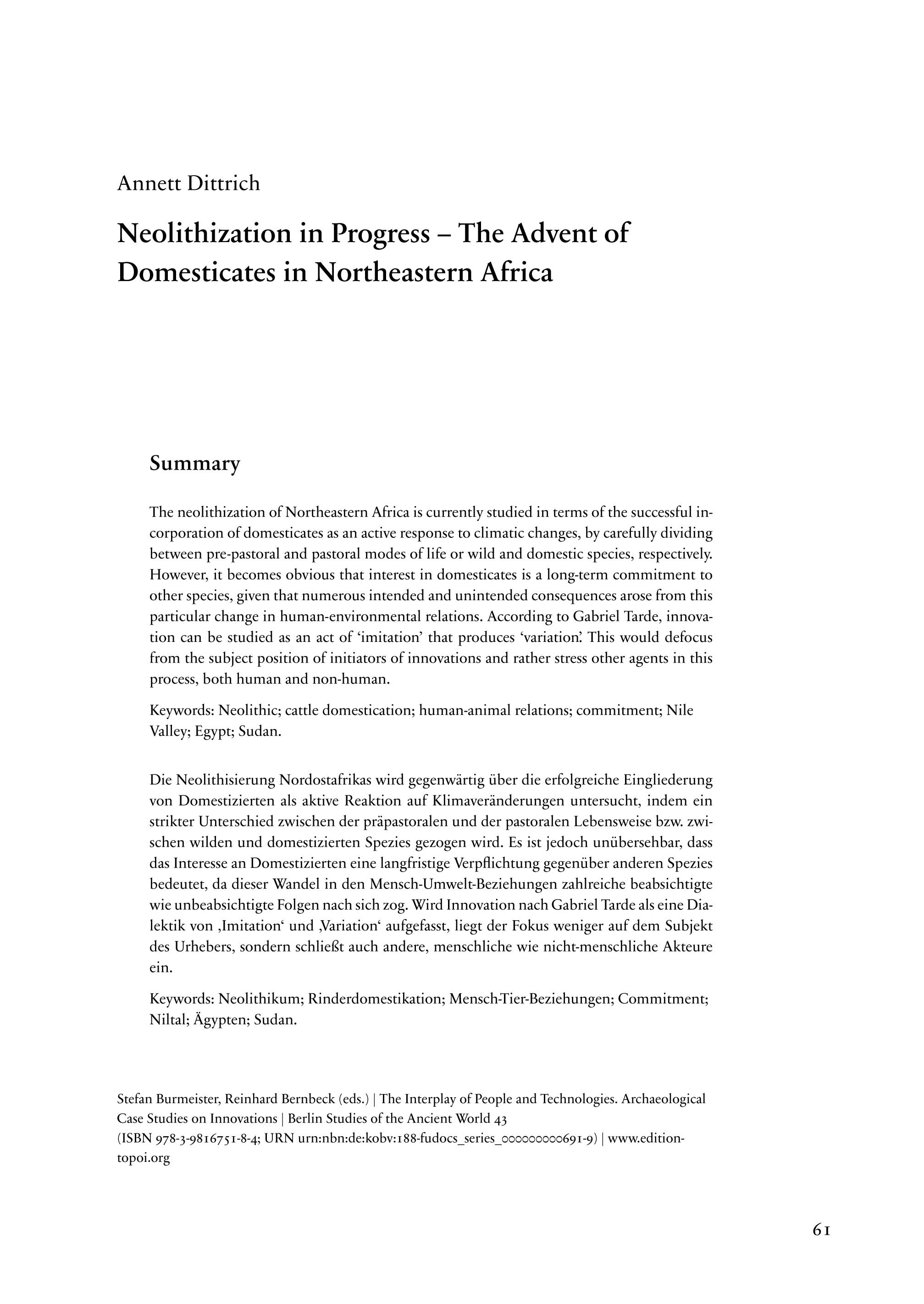Neolithization in Progress – The Advent of Domesticates in Northeastern Africa
The neolithization of Northeastern Africa is currently studied in terms of the successful incorporation of domesticates as an active response to climatic changes, by carefully dividing between pre-pastoral and pastoral modes of life or wild and domestic species, respectively. However, it becomes obvious that interest in domesticates is a long-term commitment to other species, given that numerous intended and unintended consequences arose from this particular change in human-environmental relations. According to Gabriel Tarde, innovation can be studied as an act of ‘imitation’ that produces ‘variation’. This would defocus from the subject position of initiators of innovations and rather stress other agents in this process, both human and non-human.
Die Neolithisierung Nordostafrikas wird gegenwärtig über die erfolgreiche Eingliederung von Domestizierten als aktive Reaktion auf Klimaveränderungen untersucht, indem ein strikter Unterschied zwischen der präpastoralen und der pastoralen Lebensweise bzw. zwischen wilden und domestizierten Spezies gezogen wird. Es ist jedoch unübersehbar, dass das Interesse an Domestizierten eine langfristige Verpflichtung gegenüber anderen Spezies bedeutet, da dieser Wandel in den Mensch-Umwelt-Beziehungen zahlreiche beabsichtigte wie unbeabsichtigte Folgen nach sich zog. Wird Innovation nach Gabriel Tarde als eine Dialektik von ‘Imitation’ und ‘Variation’ aufgefasst, liegt der Fokus weniger auf dem Subjekt des Urhebers, sondern schließt auch andere, menschliche wie nicht-menschliche Akteure ein.

